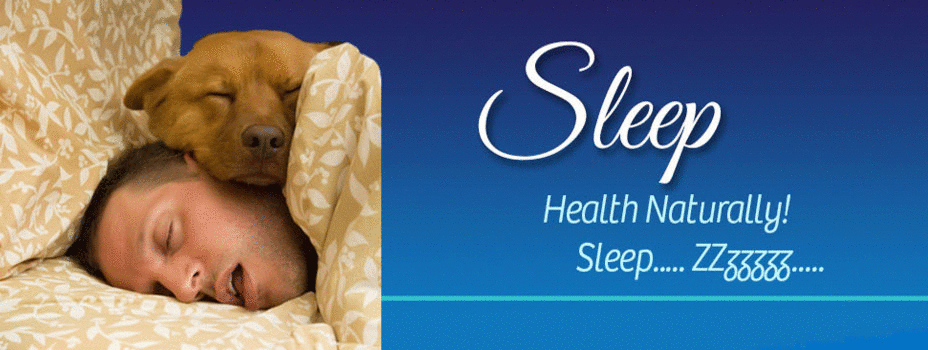Sleep
Did you
know:
It wasn’t that long ago that we thought of sleep as a passive, dormant part of our daily lives where our brains were deactivated. We now know that this is not true, our brains are very active during sleep. Sleep is essential to our well being, both physically and mentally. Neurotransmitters control whether we are asleep or awake by acting on groups of nerve cells (neurons) in the brain. These neurons switch on and off the signals that keep us awake.
There are Five stages of sleep:
-
1 & 2, light sleep
-
3 & 4, deep sleep
-
REM (rapid eye movement) sleep
-
In sleep we cycle through these stages and after REM sleep, the cycle begins again
-
This cycle takes about 90 to 110 minutes to complete. An adult spends about half of its sleep time in level 2 sleep and 20% in REM sleep
-
The remaining 30% is divided into the other stages
-
When we are infants 50% of our sleep is spent in REM sleep, the dream state, and changes as we mature
How much sleep do we need?
This depends on:
· Age
· Sex
· Circumstance
· Genetics.
· Generally, as infants we require 16 hours a day
· Teenagers the average sleep requirement is about 9 hours
· As adults the majority of us require about 7 to 8 hours a day
· However, there are those among us who may only need 4 hours and some who need 10.
Go figure. Pregnant women need several hours more sleep in the first 3 months of pregnancy. Our sleep requirements don’t seem to change as we get old but many medications taken by the elderly can wreak havoc on natural sleep patterns which is why, it is believed, that 50% of the people over 65 have some sort of sleep problem.
Why do we need to sleep?
· We know that the body rejuvenates its self during sleep and that if we deprive ourselves of sleep we become unfocused, drowsy and incoherent
-
Lab rats normally live for 2 to 3 years. In studies when lab rats were denied REM sleep, they would die in about 5 weeks. Rats deprived of all sleep lived only 3 weeks
-
Sleep is necessary for our nervous system to work properly, without it all sorts of problems ensue. Impaired memory, poor physical performance, and the inability to solve problems are all symptoms of sleep deprivation.
-
Without sleep, neurons may become so depleted in energy or so polluted with byproducts of normal cellular activities that they begin to malfunction
-
Sleep also may give the brain a chance to exercise important neuronal connections that might otherwise deteriorate from lack of activity
-
Deep sleep coincides with the release of growth hormone in children and young adults. Many of the body’s cells also show increased production and reduced breakdown of proteins during deep sleep
-
Since proteins are the building blocks needed for cell growth and for repair of damage from factors like stress and ultraviolet rays, deep sleep may truly be "beauty sleep"
We need to dream and REM sleep is where this happens
Sigmund Freud believed that dreaming was a ‘safety valve’ for unconscious desires. REM sleep stimulates the brain regions used in learning which many believe is important for normal brain development in infancy.
One study found that REM sleep affects learning of certain mental skills. People taught a skill and then deprived of non-REM sleep could recall what they had learned after sleeping, while people deprived of REM sleep could not.
Tips for a Good Night’s Sleep: (Adapted from "When You Can't Sleep: The ABCs of ZZZs," by the National Sleep Foundation.)
Set a schedule:
Go to bed at a set time each night and get up at the same time each morning. Disrupting this schedule may lead to insomnia. "Sleeping in" on weekends also makes it harder to wake up early on Monday morning because it re-sets your sleep cycles for a later wakening.
Exercise:
Try to exercise 20 to 30 minutes a day. Daily exercise often helps people sleep, although a workout soon before bedtime may interfere with sleep. For maximum benefit, try to get your exercise about 5 to 6 hours before going to bed.
Avoid caffeine, nicotine, and alcohol:
Avoid drinks that contain caffeine, which acts as a stimulant and keeps people awake. Sources of caffeine include coffee, chocolate, soft drinks, non-herbal teas, diet drugs, and some pain relievers. Smokers tend to sleep very lightly and often wake up in the early morning due to nicotine withdrawal. Alcohol robs people of deep sleep and REM sleep and keeps them in the lighter stages of sleep.
Relax before bed:
A warm bath, reading, or another relaxing routine can make it easier to fall sleep. You can train yourself to associate certain restful activities with sleep and make them part of your bedtime ritual.
Sleep until sunlight:
If possible, wake up with the sun, or use very bright lights in the morning. Sunlight helps the body’s internal biological clock reset itself each day. Sleep experts recommend exposure to an hour of morning sunlight for people having problems falling asleep.
Don’t lie in bed awake:
If you can’t get to sleep, don’t just lie in bed. Do something else, like reading, watching television, or listening to music, until you feel tired. The anxiety of being unable to fall asleep can actually contribute to insomnia.
Control your room temperature:
Maintain a comfortable temperature in the bedroom. Extreme temperatures may disrupt sleep or prevent you from falling asleep.
See a Health Care professional if your sleeping problem continues:
If you have trouble falling asleep night after night, or if you always feel tired the next day, then you may have a sleep disorder and should see a physician. Your primary care physician may be able to help you; if not, you can probably find a sleep specialist at a major hospital near you. Most sleep disorders can be treated effectively, so you can finally get that good night’s sleep you need.
If all else fails:
Of course if you still have trouble falling asleep try re-reading this article, that should do it! I actually dozed off a couple of times just putting it together! Yawn... Zzz...

